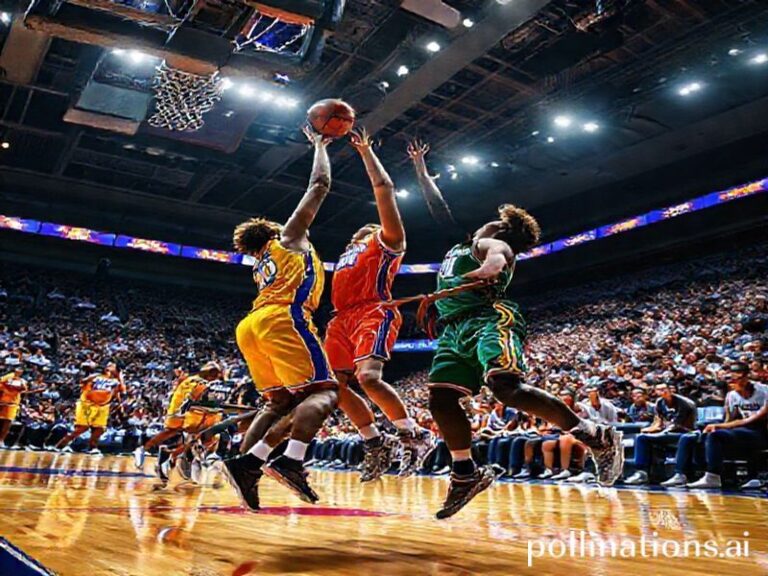Reijnders: The Dutch-Nigerian Midfielder Quietly Redrawing the World’s Soft-Power Map
Reijnders: The Dutch Dynamo Who Proves National Stereotypes Are Just Lazy Copywriting
By the time Tijjani Reijnders curled a 25-yard daisy-cutter past Gianluigi Donnarumma last month, the global football commentariat had already exhausted every possible “wooden shoes, wooden touchline” joke. From Lagos betting shops to Tokyo izakaya screens, the 25-year-old Alkmaar export had become the latest Dutchman to remind the planet that the Netherlands exports more than cheese, tulips, and thinly veiled tax avoidance schemes.
Reijnders’ breakout matters far beyond the Eredivisie highlight reels. In an era when geopolitical tensions are measured in semiconductor sanctions and LNG tanker routes, a lanky midfielder with a surname that autocorrects to “reindeer” is somehow a unifying distraction. Chinese state TV cut away from a Belt-and-Road ribbon-cutting to show his equalizer against France. A Nairobi Uber driver, stuck in the usual six-hour traffic clot, told me Reijnders’ late run reminded him “even the Dutch can still surprise you—like finding a working traffic light in Kinshasa.”
The broader significance is that Reijnders embodies football’s quiet globalization program. Born in The Hague to a Dutch mother and Nigerian father, he is the product of a passport buffet that would make a Goldman Sachs recruiter blush. He speaks four languages, listens to Afrobeats in the dressing room, and reportedly negotiates sponsorship clauses in both euros and crypto—just in case the single currency collapses before halftime. Multinational corporations love this sort of résumé; it allows them to slap his face on an Indonesian energy-drink can and claim pan-continental authenticity without actually paying anyone on any of those continents.
From a tactical standpoint, Reijnders is Ronald Koeman’s insurance policy against the national habit of self-sabotage. The Dutch have spent decades perfecting the art of reaching a semifinal, then imploding faster than a SPAC startup. Reijnders offers verticality—football jargon for “runs like the bill collectors are at the door”—something the Oranje have lacked since the original Arjen Robben stopped cutting inside and started cutting coupons. European scouts now whisper that any club able to pry him from AZ Alkmaar will instantly gain 15 million Instagram followers and a shirt-sales spike in countries that still think “Alkmaar” is a brand of discount beer.
Meanwhile, the global south watches with the weary amusement of a younger sibling whose richer cousin just discovered the family recipe. Nigerian Twitter has already nicknamed him “T-Jay the Tax Haven,” a nod to Amsterdam’s role in helping African elites spirit away enough money to fund, well, another Dutch football academy. The irony is not lost on anyone: a player of partial Nigerian descent might soon earn millions in the Premier League, pay Dutch taxes on image rights routed through a Curaçao shell company, while Lagos potholes deepen to swimming-pool depth.
Off the pitch, Reijnders’ agent is reportedly fielding offers from MLS, Saudi Pro League, and, in the latest sign of the times, a soon-to-be-announced Amazon Prime reality series titled *Midfield Empire*. Contestants will live in a decommissioned oil rig off Rotterdam, vote each other off using NFT ballots, and negotiate release clauses with a panel that includes a former FIFA ethics chief—because nothing says “ethics” like a man whose previous job was fictional.
So what does Reijnders ultimately tell us about the world? Simply that in 2024, soft power comes studded with molded studs. Nations still measure GDP and missile stockpiles, but they also track FIFA rankings the way Renaissance princes counted cathedral spires. A Dutch-Nigerian midfielder who can hit a top-corner finish is simultaneously a tourism ad, a diplomatic asset, and a liquidity event. All of which proves, once again, that the global economy runs on vibes, algorithms, and the desperate hope that somewhere out there, a 25-year-old can still make us forget the planet is on fire—at least until the final whistle.







